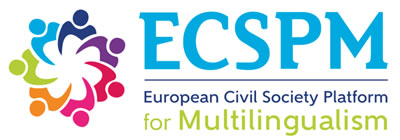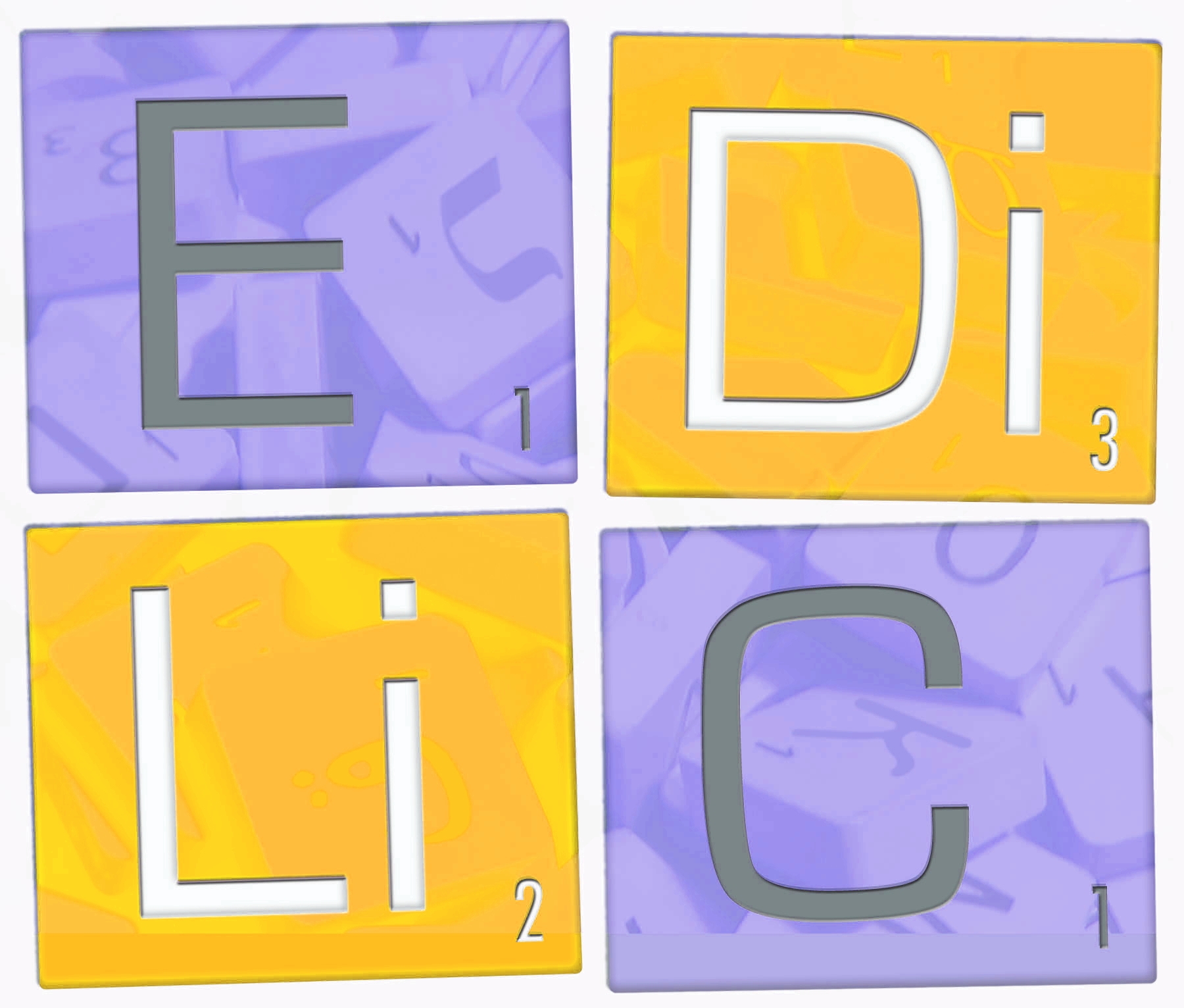 ACTFL, the American Council on the Teaching of Foreign Languages, is dedicated to the improvement and expansion of the teaching and learning of all languages at all levels of instruction. ACTFL is an individual membership organization of more than 12,000 language educators, students, and administrators from elementary through graduate education, as well as government and industry.
ACTFL, the American Council on the Teaching of Foreign Languages, is dedicated to the improvement and expansion of the teaching and learning of all languages at all levels of instruction. ACTFL is an individual membership organization of more than 12,000 language educators, students, and administrators from elementary through graduate education, as well as government and industry.
www.actfl.org
AILA, the International Association of Applied Linguistics, is the international federation of national or regional associations of Applied Linguistics, contributing to the development of all subject areas of applied linguistics.
www.aila.info
 ALTE, the Association of Language Testers in Europe, is an association of providers of foreign language examinations and includes many of the world‘s leading assessment bodies. Through its activities ALTE provides leadership in addressing issues of test quality and fairness and in raising awareness of language testing issues.
ALTE, the Association of Language Testers in Europe, is an association of providers of foreign language examinations and includes many of the world‘s leading assessment bodies. Through its activities ALTE provides leadership in addressing issues of test quality and fairness and in raising awareness of language testing issues.
www.alte.org
 CercleS, the European Confederation of Language Centres in Higher Education, is a confederation of independent associations and brings together some 290 institutions whose main responsibility is the teaching of language.
CercleS, the European Confederation of Language Centres in Higher Education, is a confederation of independent associations and brings together some 290 institutions whose main responsibility is the teaching of language.
www.cercles.org
 EALTA, the European Association for Language Testing and Assessment, is a professional association for language testers in Europe, aiming to promote the understanding and the sharing of testing and assessment practices throughout Europe.
EALTA, the European Association for Language Testing and Assessment, is a professional association for language testers in Europe, aiming to promote the understanding and the sharing of testing and assessment practices throughout Europe.
www.ealta.eu.org
 EAQUALS, the Evaluation and Accreditation of Quality in Language Services, is an international association which aims to foster excellence in language education across the world by providing guidance and support to teaching institutions and individuals. These aims are achieved by improving the experience of language learners by developing quality standards for the teaching of modern languages, delivering accreditation against these standards for providers of language education and through the development of practical resources which offer training and support for those working in the field of modern languages.
EAQUALS, the Evaluation and Accreditation of Quality in Language Services, is an international association which aims to foster excellence in language education across the world by providing guidance and support to teaching institutions and individuals. These aims are achieved by improving the experience of language learners by developing quality standards for the teaching of modern languages, delivering accreditation against these standards for providers of language education and through the development of practical resources which offer training and support for those working in the field of modern languages.
www.eaquals.org
 ECSPM, the European Civil Society platform for multilingualism is a forum for the exchange of best practices for the media, cultural organisations and those involved in non-formal and informal education. Its main objective is to promote a permanent dialogue between the Commission and civil society on the different aspects of the multilingualism policy.
ECSPM, the European Civil Society platform for multilingualism is a forum for the exchange of best practices for the media, cultural organisations and those involved in non-formal and informal education. Its main objective is to promote a permanent dialogue between the Commission and civil society on the different aspects of the multilingualism policy.
www.ecspm.org/
 ECML, the European Centre for Modern Languages of the Council of Europe, functions as a catalyst for reform in the teaching and learning of languages. It assists its stakeholders in its 34 member states in bringing language education policies and practices together.
ECML, the European Centre for Modern Languages of the Council of Europe, functions as a catalyst for reform in the teaching and learning of languages. It assists its stakeholders in its 34 member states in bringing language education policies and practices together.
www.ecml.at
 EDiLiC (Education, Cultural and Linguistic Diversity) is an international association that brings together researchers, teacher trainers, teachers, innovators, parents as well as citizens who are concerned with the state of education. It aims to promote an innovative pedagogical approach, called Awakening to languages/ Language Awareness, along with other pluralistic approaches to languages and cultures.
EDiLiC (Education, Cultural and Linguistic Diversity) is an international association that brings together researchers, teacher trainers, teachers, innovators, parents as well as citizens who are concerned with the state of education. It aims to promote an innovative pedagogical approach, called Awakening to languages/ Language Awareness, along with other pluralistic approaches to languages and cultures.
www.edilic.org

 EFNIL, the European Federation of National Institutions for Language, provides a forum for institutions - whose role includes monitoring the official language or languages of their country, advising on language use, or developing language policy - to exchange information about their work and to gather and publish information about language use and language policy within the European Union.
EFNIL, the European Federation of National Institutions for Language, provides a forum for institutions - whose role includes monitoring the official language or languages of their country, advising on language use, or developing language policy - to exchange information about their work and to gather and publish information about language use and language policy within the European Union.
www.efnil.org
 CEL/ELC, the Conseil Européen pour les Langues/ European Language Council is an association whose main aim is the quantitative and qualitative improvement of knowledge of the languages and cultures of the European Union and beyond.
CEL/ELC, the Conseil Européen pour les Langues/ European Language Council is an association whose main aim is the quantitative and qualitative improvement of knowledge of the languages and cultures of the European Union and beyond.
www.celelc.org
 EPA, the European Parents' Association, gathers the parents associations in Europe and works in partnership both to represent and give to parents a powerful voice in the development of education policies and decisions at European level.
EPA, the European Parents' Association, gathers the parents associations in Europe and works in partnership both to represent and give to parents a powerful voice in the development of education policies and decisions at European level.
www.euparents.eu
 EUNIC, the European Union National Institutes for Culture, is a network of the international cultural relations institutes from the member states of the European Union.
EUNIC, the European Union National Institutes for Culture, is a network of the international cultural relations institutes from the member states of the European Union.
eunicglobal.eu
FIPLV, the Fédération Internationale des Professeurs de Langues Vivantes, is the only international multilingual association of teachers of languages.
www.fiplv.com
 IAM, the International Association of Multilingualism is is an international network of scholars who share an interest in multilingualism.
IAM, the International Association of Multilingualism is is an international network of scholars who share an interest in multilingualism.
iam.wildapricot.org
 ICC, the International Certificate Conference e.V., is a non-government organisation and sets standards for a transnational network of language learners. The ICC is an international association with local impact representing the field of language learning and teaching.
ICC, the International Certificate Conference e.V., is a non-government organisation and sets standards for a transnational network of language learners. The ICC is an international association with local impact representing the field of language learning and teaching.
www.icc-languages.eu
 OLBI, the Official Languages and Bilingualism Institute of the University of Ottawa, strengthens and promotes education and research in the fields of teaching, evaluation and language-policy design in Canada.
OLBI, the Official Languages and Bilingualism Institute of the University of Ottawa, strengthens and promotes education and research in the fields of teaching, evaluation and language-policy design in Canada.
www.olbi.uottawa.ca